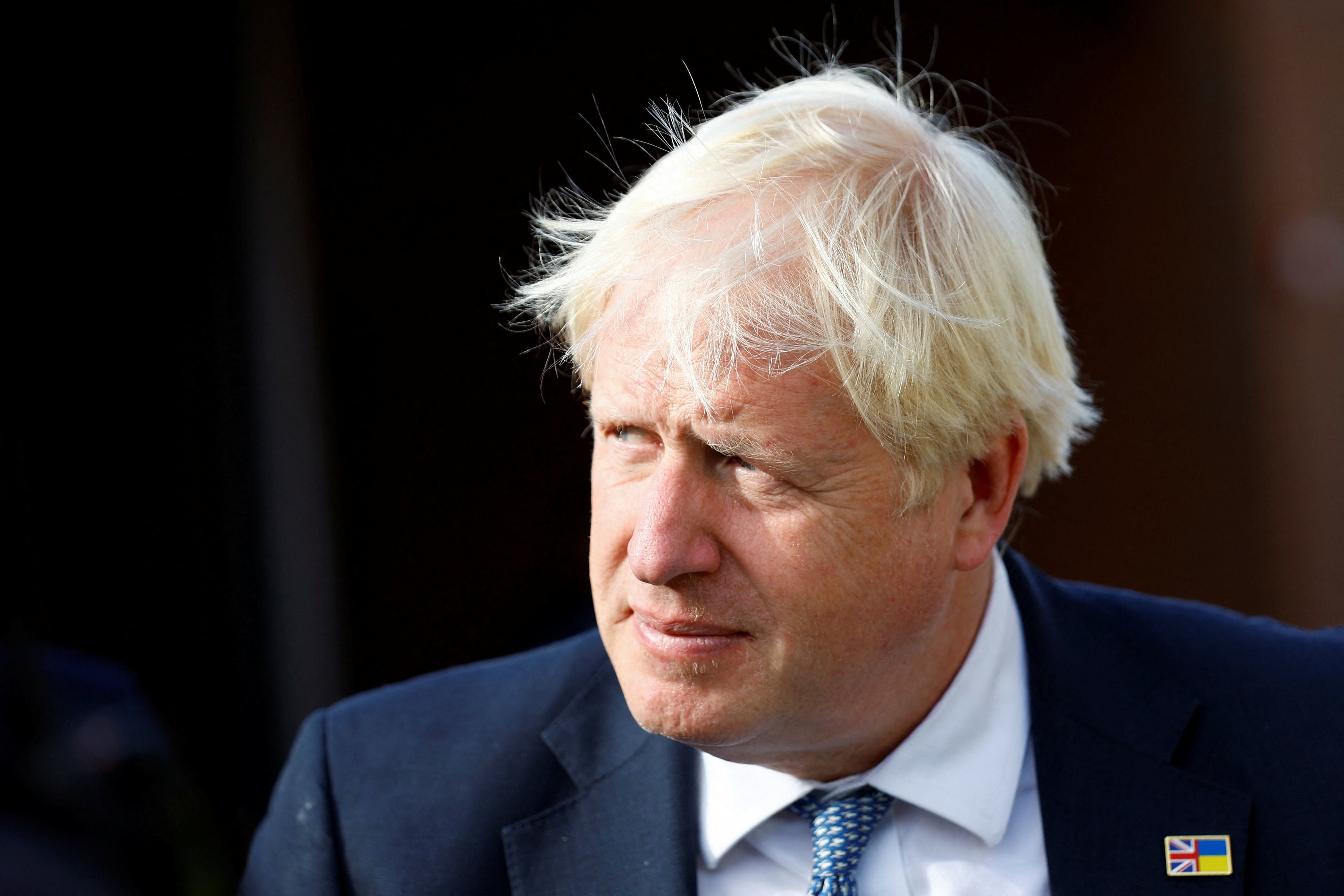Boris Johnson will survive the inquiries – but he is unlikely to be prime minister again
The privileges committee inquiry into the former prime minister will start public hearings soon, writes John Rentoul


The Committee of Privileges inquiry into whether Boris Johnson knowingly misled parliament as prime minister is about to start taking evidence in public, including from Johnson himself. This will be a media circus, powered by a keen sense of anticipation. Journalists will naturally talk up the possibility that Johnson could be censured severely enough to trigger a by-election in Uxbridge and South Ruislip, but a sober look at the inquiry suggests that he will survive with a minor telling-off at worst.
Johnson is also likely to emerge relatively unscathed from the public inquiry into the government’s handling of coronavirus, which is going to be a bigger and longer-running media event. Baroness Hallett’s inquiry has hired 11 KCs and 50 junior barristers, and still intends to start taking evidence this spring.
The pre-publicity for both inquiries has been reminiscent of that of the Hutton and Chilcot inquiries into Tony Blair’s conduct during the Iraq war. In both those cases, the media hullabaloo, which in Chilcot’s case lasted seven years, convicted, hanged, drew and quartered Blair only to be confounded by the reports themselves, which exonerated him of all the worst charges.
It will be much the same for Johnson. His opponents have already decided that he is guilty, and for them the purpose of these inquiries is to confirm what they already know and to punish him. They are likely to be disappointed.
First, the privileges inquiry. The committee is required to decide whether Johnson “knowingly misled” the Commons in his statements about gatherings in Downing Street that broke coronavirus law. This is a high hurdle to cross, because it would require evidence that Johnson was told that the law or guidelines might have been broken, before he told the Commons that “all guidance was followed in No 10”.
We already know a lot of the potentially damaging internal material, as a result of the campaign against Johnson by Dominic Cummings, his former chief adviser, but nothing has emerged to contradict those words directly. Sebastian Payne, in his book The Fall of Boris Johnson, concludes that his subject was reckless in making those statements to the Commons, because he failed to make enquiries beforehand, but that is not the same as “knowingly misleading” parliament.
We also know enough about the membership of the Committee of Privileges, and the way it works, to know that it is unlikely to take the most hostile attitude towards Johnson’s conduct. Although the committee has a Labour chair, Harriet Harman, four of its seven members are Conservatives. They are independent-minded – one of them is Charles Walker, after all. Walker has been rude about many of his fellow Tories, but he is no Boris-hater. In fact, he argued against the Commons voting to refer Johnson formally to the committee: “I believe genuinely that the prime minister is a good and decent man,” he said, “and he can make the case to the privileges committee directly without having to divide this House and have yet more poison pumped into public life.”
The committee is proceeding carefully, and its inquiry is being advised by Sir Ernest Ryder, a former court of appeal judge. The worst it is likely to conclude is that Johnson should have been more careful in his language. My view is that it is most unlikely that the committee, taking its quasi-judicial role seriously, would recommend a punishment as severe as the suspension for 10 sitting days that is required to trigger a recall petition for a by-election.
Further away in time, I doubt that the Covid inquiry is likely to conclude that Johnson was guilty of anything more than making imperfect decisions in fast-moving and difficult situations. His defence, certainly in the early part of the pandemic, is that he acted on the advice of the government’s medical and scientific advisers. Again, the best efforts of Dominic Cummings to lay out the case against his former boss and Matt Hancock, the health secretary, have so far failed to produce conclusively damning evidence – beyond a report of Johnson exclaiming “let the bodies pile high” in a moment of high frustration.
By the time Lady Hallett’s report is published, however, the idea of Johnson making a comeback to No 10 is likely to have died of natural causes. If Keir Starmer is prime minister after the next election, the party is unlikely to turn to Johnson, and he is unlikely to want to be leader of the opposition. If Rishi Sunak holds on, he will have won his own mandate and the need to go back to an old and failed leader will diminish even more quickly.
Johnson’s more hostile opponents are likely to be disappointed by both inquiries, but his more excitable supporters are equally likely to be disappointed: he is not going to be coming back.



Join our commenting forum
Join thought-provoking conversations, follow other Independent readers and see their replies
Comments